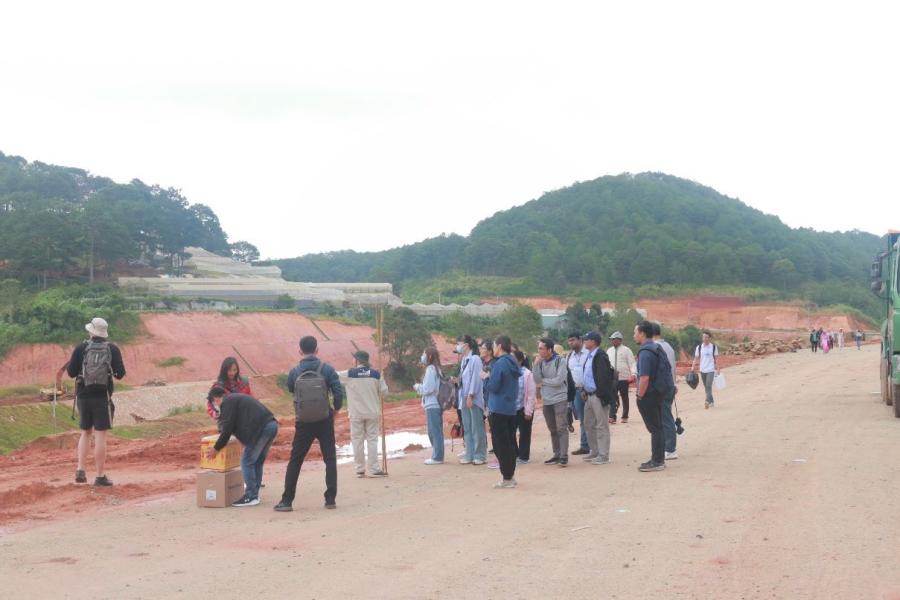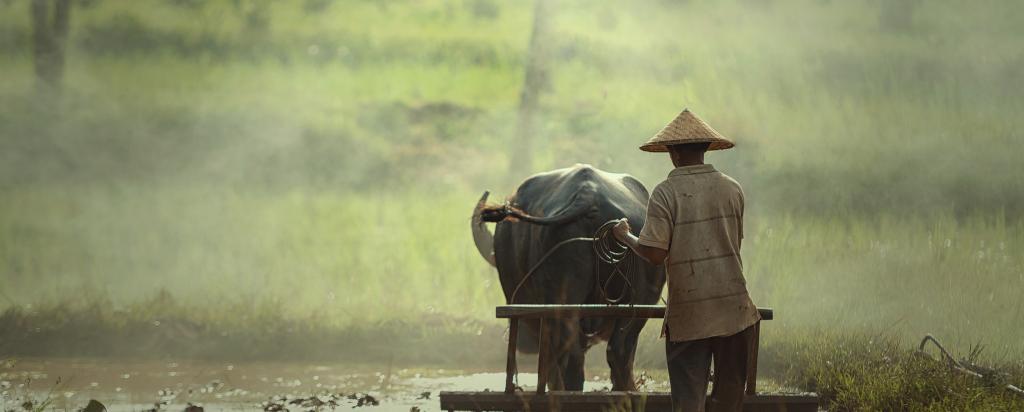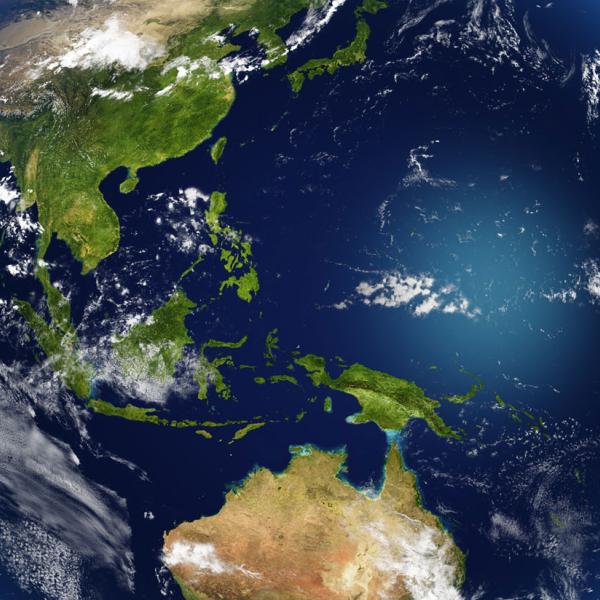

Published on the 11th December 2024 by ANSTO Staff
Australia is leading an agriculture project in the Asia and Pacific region, in partnership with the International Atomic Energy Agency (IAEA) and the Regional Cooperative Agreement for Research, Development and Training Related to Nuclear Science and Technology for Asia and the Pacific (RCA) to progress Atoms4Food.
This initiative supports the development of science-based policy recommendations to improve agricultural practices and food security. These recommendations will help governments implement effective measures for reducing agricultural pollution, enhancing water quality, and achieving sustainable land management.
The regional project, Assessing and Mitigating Agro-Contaminants to Improve Water Quality and Soil Productivity in Catchments Using Integrated Isotopic Approaches, recently reached a significant milestone. The recent mid-term review meeting reported substantial progress in developing technical capacities among participating Asia and Pacific countries to improve agricultural production.
With funding and support from the IAEA, this critical initiative is addressing the pressing issue of agricultural pollution affecting soil and water resources, while promoting long-term environmental sustainability and food security.
Led by Associate Professor Tim Ralph and Dr Chathurika Perera from Macquarie University, it is driving efforts to build the technical capacity of 20 countries in the Asia and Pacific region. The project’s overarching aim is to equip these countries with the skills and tools needed to assess and mitigate agro-contaminants—pollutants resulting from agricultural activities that degrade soil productivity and water quality. Using advanced isotopic techniques, participating countries are enhancing their abilities to trace the origins and movement of contaminants in agricultural catchments.
Importantly, this project is part of the IAEA’s Atoms for Food flagship initiative, which promotes the use of nuclear technologies to advance food security and sustainable agricultural practices. It also plays a vital role in supporting the United Nations Sustainable Development Goals (SDGs), specifically SDG 2 (End hunger, achieve food security and promote sustainable agriculture) and SDG 6 (Ensure availability and sustainable management of water and sanitation for all).
Halfway through the four-year timeline, the project has made significant progress in several key areas:
Capacity Building
To date, (15) National Project Teams in the Asia and Pacific region have been trained in the application of integrated isotopic techniques to monitor and manage agro-contaminants. These skills are crucial for improving agricultural resilience and regional food security.
Reflecting on the training efforts, Assoc Prof. Ralph said, "By enhancing national capabilities, we are empowering countries to protect their vital water and soil resources, which are crucial for sustainable agriculture and food security. This is not just about solving immediate problems but about creating long-term solutions."
Data Collection and Analysis
Participating countries have begun to collect data from key agricultural sites, tracking how contaminants such as fertilisers, pesticides, and organic waste move through their catchments. The collected data feeds into a regional database, which will serve as a critical resource for identifying pollution hotspots and improving transboundary water management. This regional approach is particularly important for shared river systems such as the Mekong and Red Rivers, where contamination crosses national borders.
National Studies
National-level studies have already been initiated in countries such as India, Malaysia, and the Philippines, where expert missions support development of science-based mitigation strategies.
Commenting on this progress, Dr. Perera noted, “Our goal is to ensure that these studies translate into practical solutions that not only improve water and soil quality but also contribute to greater agricultural sustainability. This regional collaboration is pivotal for tackling shared environmental challenges that no country can address alone.”
What sets this regional project apart is its innovative use of integrated isotopic approaches, combining stable isotopes such as nitrogen-15 and carbon-13 with fallout radionuclides (FRNs) like caesium-137. These techniques offer a precise means of “fingerprinting” sediment and contaminants, allowing scientists to trace the source and movement of pollutants within water and soil systems.
Assoc Prof. Ralph elaborated on the importance of isotopic techniques in the project, highlighting that “isotopic tools give us a unique ability to pinpoint the origins of agro-contaminants and follow their pathways through ecosystems. This information is invaluable for developing targeted interventions that address pollution at its source, which is essential for improving agricultural practices and protecting environmental health.” This level of precision is vital for ensuring the effectiveness of mitigation strategies and for promoting sustainable agriculture across the region.
As the project moves into its second stage, several key activities are planned.
Expansion of National Studies More countries are expected to launch national studies that apply isotopic techniques to assess and mitigate agro-contaminants. These efforts will be supported by ongoing expert missions, which will continue to provide the necessary technical guidance to ensure the successful implementation of these studies.
Data Consolidation and Analysis
The regional database, a core element of the project, will continue to expand as more countries contribute their findings. This database will play a pivotal role in informing recommendations for improved agricultural management practices across the region, particularly in areas where pollution has transboundary implications.
Policy Development
Based on the data collected and analysed through national studies, the project will support the development of science-based policy recommendations for improving agricultural practices. These recommendations will help governments implement effective measures for reducing agricultural pollution, enhancing water quality, and ensuring sustainable land management.
By the project’s completion in 2025, it is anticipated that all 20 participating countries will have contributed to the regional database, creating a comprehensive resource that will inform both national and regional approaches to managing agro-contaminants. These efforts will help ensure that the Asia-Pacific region is better equipped to tackle the environmental and agricultural challenges posed by agro-contaminants.
ANSTO plays a key leadership role in coordinating national participation in IAEA RCA regional collaborations to progress the UN SDGs in human health, environment, climate change, agriculture and industry.
This regional project is poised to make a lasting impact on agricultural sustainability, food security, and environmental health in the Asia and Pacific region. By empowering countries with cutting-edge nuclear and isotopic technologies, the project equips nations to tackle agro-contaminant challenges and protect vital natural resources. As the project continues to build momentum, its outcomes will serve as a model for how scientific collaboration and innovation can drive sustainable development and improve quality of life for people across the region.


